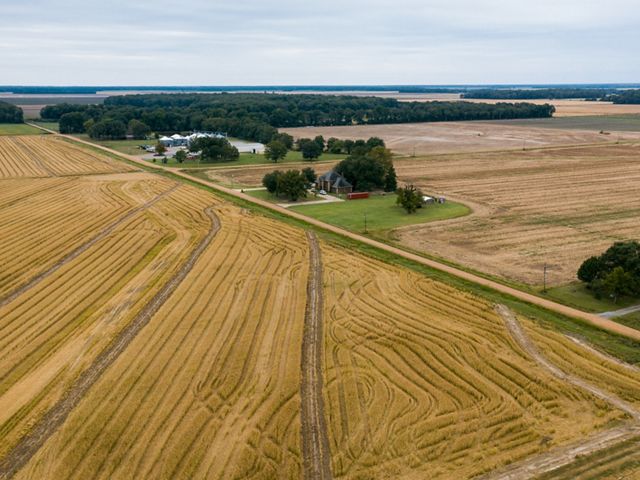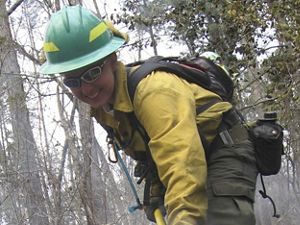Agriculture in Arkansas
See how TNC is working with farmers across Arkansas to promote sustainable agriculture practices.
Overview
Agriculture is the backbone of Arkansas. As the #1 rice producer in the U.S., the #3 cotton producer, and a top soybean-producing state, farming supports over 235,000 jobs across the state. With more than six million acres of row crops—five million of which are irrigated—Arkansas farmers are critical to feeding a growing global population. However, with food demand expected to increase by more than 50% over the next 30 years, it’s more important than ever to support farmers in ensuring our agricultural systems can meet this demand.
The Nature Conservancy in Arkansas is working alongside farmers, researchers and industry leaders to conserve our natural resources while ensuring a thriving agricultural economy. Through strategic initiatives focused on water quality and quantity, we are driving innovative solutions to support both farming and conservation in the Arkansas Delta. We are working to help deliver programs that improve on farm profitability and environmental outcomes to secure a stable agricultural industry and food supply.
Arkansas Agriculture by the Numbers
-
#1
rice producing state in the US
-
#3
cotton producer in the US
-
#10
soybean producer in the US
-
235,000
jobs in Arkansas are in agriculture
-
6.2 M
acres of row crops
Water Quantity
Groundwater is one of our most valuable hidden resources. While largely out of site, it is critical for biodiversity, growing food, providing nearly half the world's drinking water, and other needs for a healthy planet.

Well Timer Program
Groundwater is a vital resource for Arkansas agriculture with many farmers relying on wells and irrigation infrastructure to maintain current levels of productivity. In critical groundwater areas the aquifer is 70-90% depleted and may not support current production methods in the next 20 years. Our goal is to help farmers protect this invaluable resource for the benefit of future generations.
Since 2019, TNC Arkansas has been piloting a well timer program in the Delta to provide farmers with pump automation devices that allow them to shutoff wells at any time and from anywhere. These well timers allow farmers to remotely shut off wells via timer function or mobile devices, reducing over pumping and operational costs. The timers and installation are delivered through the program at no cost to the farmer other than annual subscription fees for telemetry units.
From farmers in our pilot program, we know that the water savings from timers generally come from quality-of-life benefits such as shutting down wells during large rain events with a single touch or just being able to manage and monitor irrigation runs while out of town. Each timer can annually save up to 189,000 gallons of water per acre. This program is a crucial step towards more sustainable farming practices, especially in critical groundwater areas of the Delta region.
The results of the program have been significant:
600+ timers installed across 60,000 acres
10 billion gallons of water saved annually
Up to 20% reduction in water usage based on USDA research
With a goal to scale this project to over 12,000 timers across 1.2 million irrigated acres, we are actively seeking additional funding to expand this impactful initiative.
Our research partners include USDA Agriculture Research Service and University of Arkansas Discovery Farms. We are also collaborating with NRCS, The KKAC Organization, Ducks Unlimited, Arkansas Association of Conservation Districts and USA Rice.
To learn more about the well timer equipment and pump automation please visit our vendors websites below:

Master Irrigator Course
In partnership with the University of Arkansas Extension, TNC is helping develop a Master Irrigator (MI) program to provide additional resources for farmers looking to optimize irrigation efficiency and improve soil health. We are working with local farmers and partners to understand the irrigation challenges they face on their farms and how we can deliver timely and useful information to help solve those challenges.
This also builds on successful UA Extension programs where there are hands on and classroom training that covers key topics such as irrigation water management, agronomics, and conservation policies, equipping participants with the tools they need to maximize crop yields and profitability while conserving water.
Four other states—Texas, Oklahoma, Mississippi, and Colorado—already have MI programs, each tailored to their specific agricultural needs. We are currently engaging with Arkansas farmers to help shape the program, with the goal of launching the first course in Winter 2026-2027.
Master Irrigator Program Survey.
If you would like to provide input on the Master Irrigator program please take our quick survey. The survey takes just a few minutes and will help to inform the development of the program.
Enhancing Drainage Ditches
When most people think of ditches, they picture small, grassy channels on the roadside. But in the Arkansas Delta, drainage ditches are anything but an afterthought—they are essential infrastructure for both farming and conservation. The largest river ditches can be up to 80 feet wide at their bottom width, and the network of ditches feeding into the Cache River totals over 1,000 linear miles.
For Arkansas farmers, healthy drainage ditches mean productive fields. Farmers experience a variety of ditch maintenance challenges that can lead to erosion, reduced crop yields and declining water quality. That’s why TNC is working closely with local drainage districts to implement conservation-based management solutions that reduce long-term maintenance costs and ensures this vital infrastructure functions well for nature and people.
Our work focuses on sustainable drainage in the Upper Cache River Watershed to ensure positive outcomes in the Lower Cache, a vital ecological area. This area includes the Cache River National Wildlife Refuge, part of the larger Big Woods ecosystem. Spanning over 500,000 acres, the Big Woods is one of the largest remaining bottomland hardwood forests in the Lower Mississippi Alluvial Valley and is one of the most important places for waterfowl in the U.S. Improving ditch management will help conserve the Big Woods, conserving its rich ecosystem and vital habitats.

TNC is developing a scientific roadmap to guide maintenance and other investment in drainage systems to achieve drainage solutions for farms and wildlife at scale. Currently, we have seen success with two-stage ditch enhancement projects in Arkansas. These rehabilitation projects incorporate floodplain benches within the ditch channel allowing sediment to naturally settle within the channel, increasing bank stability, reducing in-channel erosion and managing excess nutrients in the watershed.
These newly designed ditches require very little maintenance, easing the burden on drainage districts and landowners. Two-stage ditches are a well-established practice that has proven successful across the country.
By restoring and stabilizing these vital waterways, we help reduce sediment runoff, improve water quality and ensure long-term sustainability for both farmers and wildlife.


A New Market for Reforesting Degraded Floodplains
TNC has partnered with Bain & Company, the Walton Family Foundation, the American Forest Foundation and Harvard Business School’s Community Partners Program to pilot a new finance model for conservation in the Delta region.
Floodplain Reforestation
For years, farmers in the Mississippi River Delta have experienced hardship from flooding, which is projected to worsen in the coming decades.
For landowners facing frequent flooding on marginal cropland, our Floodplain Reforestation Program offers a solution that benefits both farmers and the environment. By restoring flood-prone fields to native bottomland hardwood forests, we help reduce erosion, improve water quality and create habitat for wildlife—while reducing profit loss on marginal acres and providing landowners with a new revenue-generating model on the restored lands.
By aligning investors, landowners, foundations, and government, TNC and our partners hope to turn these hardships into opportunities that will benefit farmers, communities, and the native wildlife of the Delta for years to come.
In an initial pilot project, we’re recruiting landowners in Arkansas, Louisiana and Mississippi to reforest some 3,600 acres. Today, TNC and our partners are taking steps to ensure that initiatives such as the Floodplain Reforestation Program are available to all farmers who can benefit from them.
Meet the Arkansas Ag Team
Sign up for Nature News.
Sign up to receive monthly conservation news and updates from Arkansas.









